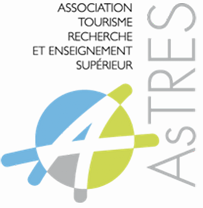Call For PapersOBJECTIVES
Tourism represents a strategic theme for research and public policies related to its economic importance as well as all the implications concerning social and environmental issues. But it has historically been considered as a peripheral issue in research and public policies or simply interpreted as an operational activity in the market sector. However, in recent years the perception of its economic value, as well as its potential social, cultural and environmental impacts, has influenced a novel approach to research based on its interdisciplinary understanding. We can identify two parallel phenomena. On the one hand, the public sector no longer has the capacity to push forward large-scale tourism projects as was the case in the 20th century. On the other hand, public policies are essential in order to regulate tourism phenomena. The recent conflicts in several European cities during the summer of 2017, qualified as tourismophobia, have demonstrated the need for more public regulation. In terms of heritage, public intervention (at a local, regional and national level), is also considered necessary to respond to the main challenges of sustainability, preservation of natural and cultural resources and the well-being of local communities. A significant effort has been made by many public research institutions in Latin America and Europe to promote new perspectives of tourism interpretation and actions aiming for sustainable tourism. This conference aims to analyze and interpret public policies in terms of heritage, seen here in a broad sense, covering both tangible patrimony (architectural, historical, natural, etc.) and intangible patrimony and evaluate their current impact. What is the role, meaning, impact and implication of public heritage policies in relation to tourism in contemporary societies?
The objective of this international conference is to promote and strengthen a qualified and interdisciplinary approach to tourism research, planning and capacity building and to collaborate in building bridges between academic work, the public management sector and society as a whole based on the principles and commitments of sustainable tourism. Based on the challenges of integrating different kinds of tourism heritage and public policies, the workshop will address the following principle questions:
SUBMISSION PROCEDURE Please send abstracts (approx. 500 words) in French, English or Portuguese, and a one-page CV to astres.colloque2018@gmail.com by June 15th, 2018. We will notify contributors of their acceptance by July 30th, 2018.
[1]In May/June 2016 The International Workshop Tourism, Nature and Culture: Interdisciplinary Dialogues and Public Policies was organized by the Federal University of Rio de Janeiro in collaboration with USP and IREST/Paris 1. This event resulted in a Platform called TP3: Tourism, Patrimony and Public Policies, the annals of the workshop with all the papers presented and an e-book covering long-term cooperation between France and Brazil which had the official support of the French Consulate in Rio de Janeiro. |


